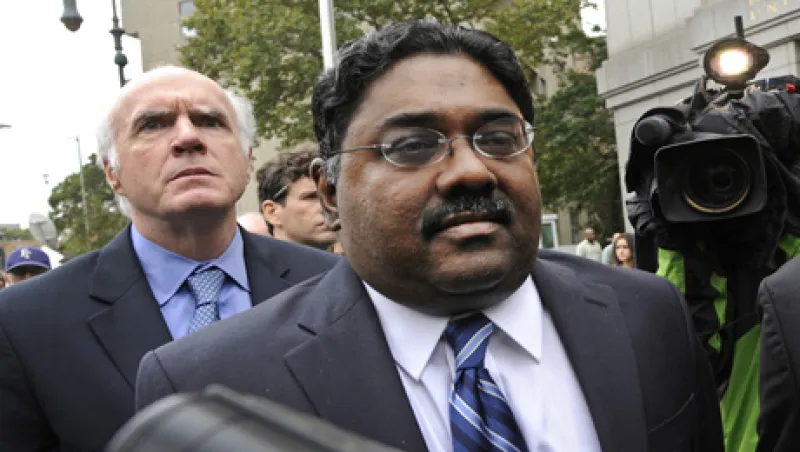The Securities and Exchange Commission brought a record number of enforcement actions in the fiscal year that ended September 30.
The agency counted 735 actions, up about 8.5 percent from 677 the prior year. And actions against investment advisers and broker-dealers was chiefly responsible the increase.
The SEC also said more than $2.8 billion in penalties and disgorgements were ordered in fiscal 2011 enforcement actions.
While the big insider trading cases involving former Galleon founder Raj Rajaratnam and expert networks generated huge headlines, the number of insider trading cases grew in line with the overall count, rising 8 percent, to 57 from 53 the prior year. “Everyone can agree they have been far more aggressive and active [in this area] than the statistics show,” says Barry Goldsmith, a partner in the New York and Washington, DC offices of Gibson, Dunn & Crutcher who previously spent 10 years at the National Association of Securities Dealers (NASD) — now FINRA — as Executive Vice President for Enforcement and earlier served as Chief Litigation Counsel at the SEC.
Rather, the SEC saw the biggest surge last year in enforcement actions involving investment advisers and broker-dealers.
It filed a record 146 enforcement actions, up 30 percent from the prior year, against investment advisers and investment, and another 112, up 60 percent, against broker dealers.
High-profile targets of these actions included Charles Schwab entities and executives for making misleading statements to investors regarding risky investments made by a mutual fund, AXA Rosenberg Group, and its founder for concealing a significant error in the computer code of its quantitative investment model, and Merrill Lynch for misusing customer order information to place proprietary trades for the firm and for charging customers undisclosed trading fees, according to the SEC.
The SEC also brought a number of Ponzi scheme cases in the past few years.
The SEC as well as Goldsmith credit the agency’s revamping of the Enforcement Division in 2009 and 2010 under Director Robert Khuzami. Among the significant changes it undertook, The SEC removed an entire layer of management and created special units to investigate five high-priority areas—asset management, market abuse, structured and new products, foreign corrupt practices, and municipal securities and public pensions.
In addition, the SEC said it filed 15 separate actions related to the financial crisis, involving 17 individuals, including 16 CEOs, CFOs and other senior corporate officers. The cases included ones in which J.P. Morgan allegedly misled investors in a collateralized debt obligation as the housing market began to plummet, and in which Wachovia Capital Markets allegedly engaged in misconduct in the sale of two CDOs tied to the performance of residential mortgage-backed securities.
During the last two years, the SEC filed 36 separate actions in its financial crisis-related cases against 81 defendants resulting in nearly $2 billion in disgorgement, penalties, and other monetary relief.
The SEC also brought 89 actions in 2011 for financial fraud and issuer disclosure violations. Targets included Satyam Computer Services for overstating its financial results by more than $1 billion over five years, the India-based affiliates of PricewaterhouseCoopers for their audit failures related to Satyam, and DHB Industries, a major supplier of body armor to the U.S. military and law enforcement agencies, for engaging in a massive accounting fraud.







